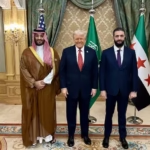Canadian Prime Minister Mark Carney has openly criticized both King Charles III and the British government for extending a second state visit invitation to former U.S. President Donald Trump. Carney expressed deep concern that the gesture sends a troubling message at a time when Trump continues to float the idea of Canada becoming the 51st state of the United States.
Growing Friction Over Sovereignty
Since returning to office in January, Trump has reignited tensions with America’s northern neighbor by suggesting Canada should be annexed and turned into a U.S. state. The provocative comments have sparked outrage among Canadians and put allied nations in a difficult position—especially the United Kingdom, which holds longstanding diplomatic and ceremonial ties with Canada.
The tension is especially complex given King Charles III’s dual role as the monarch of both the United Kingdom and Canada. While the King has recently made symbolic efforts to affirm his connection to Canada—such as donning Canadian honors, planting a maple tree, and calling himself the “King of Canada”—he has refrained from publicly addressing Trump’s inflammatory statements.
Carney Questions UK’s Diplomatic Priorities
In an interview with Sky News, Carney responded candidly when asked about British Prime Minister Keir Starmer’s decision to personally deliver an invitation from King Charles to Trump during a February visit to the White House.
“To be frank, Canadians weren’t impressed by that gesture,” Carney remarked. “It came at a time when we were speaking very clearly about issues surrounding our sovereignty. The optics were unfortunate.”
Carney, who rose to power earlier this year after promising to stand firm against Trump’s annexation rhetoric, has made Canadian independence a cornerstone of his political platform. He emphasized that King Charles’ upcoming attendance at Canada’s state opening of parliament on May 27 was no coincidence, but rather a deliberate and timely act to reinforce national unity.
“This is a reaffirming moment for Canadians,” he added. “Given everything we’ve heard from President Trump, the presence of the monarch in Ottawa carries symbolic weight.”
The UK’s Delicate Balancing Act
Prime Minister Starmer, looking to rebuild strong U.S.–UK ties post-Brexit, has taken a more pragmatic approach in dealing with Trump. The British government has highlighted shared defense priorities, agreed to a limited trade deal, and emphasized ceremonial diplomacy as a way to strengthen bonds with Washington.
However, this strategy has attracted criticism from both domestic and international observers. Senior UK official Pat McFadden, when asked about Carney’s comments, maintained that “each country must determine its own diplomatic path.”
Nonetheless, Carney’s remarks have reignited debate over how far democratic allies should go in courting Trump, particularly when his statements challenge the sovereignty of close partners.


